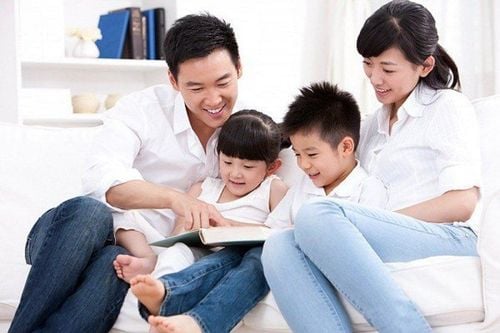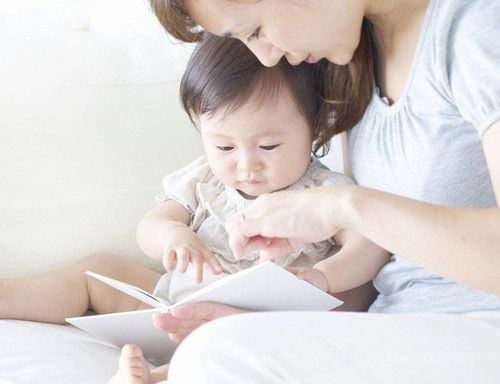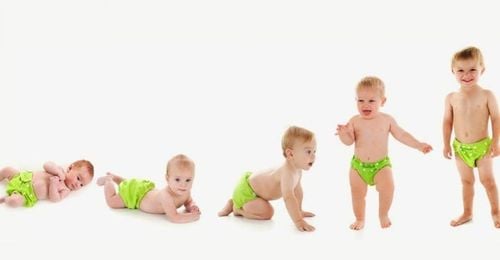This is an automatically translated article.
The article was professionally consulted by Resident Doctor Ho Thi Hong Tho - Neonatologist - Pediatrics - Neonatology Department - Vinmec Phu Quoc International General HospitalEvery child is born and grows up through stages of social cognitive development. At each age, the process of forming this skill is different. In order to understand children's psychology and help children develop skills well, parents need to know the changes of children at each age so that they can help children form better social awareness.
1. Development of children's social awareness
How does the child know his/her relationship with others? When does your baby start making friends? ... You are your baby's first playmate, baby's favorite. Your baby may enjoy the sound of your voice, your face, and the touch of your hand.With your help, your baby will become familiar with others and begin to love their companionship. This is the beginning of a child's development of social skills.
2. Cognitive development in children
Right from birth, babies are likely to respond to others. Your baby's ability to socialize is limited during the first year, as he focuses most of his efforts on discovering what he can do on his own - like holding and picking up objects, walking, and other skills. .Even before your baby can babble, you will enhance his language ability whenever you talk to him. Even though it may seem like you're having a monologue, your baby will benefit from the interaction she has with you when you read or talk to her.
Around the age of 2, your baby will begin to enjoy playing with other children. As with any other skill, your baby's social skills will need some adjustment through trial and error.
At first, your baby won't be able to share toys, but as he learns to empathize with others, he'll become a better playmate. By age 3, your baby will be well on his way to making friends.

Ngay cả trước khi bé biết nói bập bẹ, bạn sẽ tăng cường khả năng ngôn ngữ của con bất cứ khi nào bạn nói chuyện với con
3. Cognitive development in children through each age
3.1. Baby is 1 month Baby is a social creature from the start. Babies love to be touched, hugged, talked to, cooed and smiled.From the first month, your baby will start experimenting with making faces with you. Your baby will love seeing your face and may even imitate some of your gestures. Stick out your tongue and watch your baby do the same.
Baby is also listening and learning from the sounds you make. Eye contact is important, so when you talk to your baby, make eye contact. Before long, your baby will be crying and cooing to babbling, all necessary steps for language development.
3.2. Baby is 3 months Now babies spend many hours awake observing what's going on around them. Baby will even have his first genuine smile, an important event for most parents. Soon, your baby will become an expert at "smile chat", starting to interact with you by sending smiles your way and cooing at the same time.
3.3. Baby is 4 months Babies are becoming more open to new people at this age, greeting them with squeals of joy. However, no one comes close to mom or dad. Your baby will give you the most enthusiastic response, a surefire sign that you're attached.
Your baby may start babbling at this age and you will likely see your ability to interact with you skyrocket. To encourage this, talk to him whenever you can, even when you're doing simple chores or activities around the house.
3.4. Baby is 7 months For the most part, babies are too busy honing their skills to really bond with another child. When two babies under 1 year old are placed side by side with the same set of toys, they often play alone and not with each other.
Babies may begin to have a fleeting interest in other babies as they move more. Most interactions will be limited to glancing and grabbing, but occasionally your baby will smile and coo or imitate another baby's sounds.
She still prefers her immediate family over everyone else. Over the next few months, your baby may even begin to fear people he doesn't know and grapple with separation anxiety.
3.5. Baby turns 12 Months At the end of her first year, she may start to appear hostile - cry when you leave her side or worry when she's in the arms of someone other than you or your partner. friend. Many children experience separation anxiety, which peaks between 10 and 18 months.
Baby likes you to be excluded from others and may suffer when you are not around. Sometimes it's just your presence that calms your baby down.
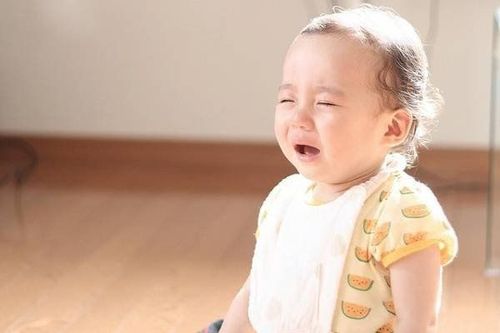
Vào cuối năm đầu tiên của mình, bé có thể bắt đầu có vẻ biểu hiện chống đối - khóc khi bạn rời khỏi bên cạnh con hoặc lo lắng khi con ở trong vòng tay của người khác ngoài bạn hoặc bạn đời của bạn
However, between the ages of 1 and 2, babies will be fiercely protective of their toys, which can be difficult for parents who think their children should learn to share.
You may notice your child imitating his friends and spending a lot of time watching what they do. She'll also want to assert her independence - for example, by refusing to hold your hand when you're walking down the street or by getting upset when you tell her she can't bring grape juice into her bedroom.
3.7. Your baby is 24 to 36 months old Between the ages of 2 and 3, your child can be quite self-centered. She doesn't care much about putting herself in other people's shoes, and she assumes everyone feels the same way.
Do not worry. As they get older and with some guidance they will learn to share and take turns, and maybe even make a special friend or two.
When your baby grows up, he will enjoy and attract other people, especially other children. Your baby will learn more about how to react to others in social situations and his interest in his playmates will develop. Your baby will benefit greatly from watching and interacting with other children.
Once your baby learns to empathize with other children and how enjoyable it is to have playmates, she will develop genuine and lasting friendships.
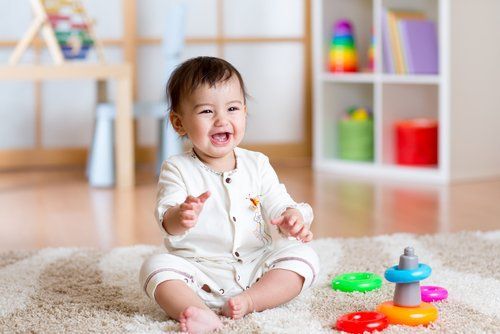
Trong độ tuổi từ 2 đến 3, con bạn có thể khá tự cho mình là trung tâm
4. The role of parents in the development of children's social cognition
Parents should spend a lot of time face-to-face with your baby, especially in the first few months. Your baby will love the attention and will love to face you.Invite friends and relatives over. Children (especially toddlers) love visitors, young and old alike, especially when they're all making a fuss.
Don't get upset or embarrassed if your baby starts to worry about strangers. It's completely normal, starting as early as 7 months.
If the baby cries when you put him in the arms of a loved one, bring him back and try the slow desensitization process. Let your baby be comfortable in your arms while the other person is around. Then, talk personally and play with your baby while you hold him.
Then give the baby to the other person for a short time and stay close. Finally, try leaving the room for a few minutes and see how it goes. If your baby continues to cry, you can try again.
Toddlers can benefit from having peers around, so arrange regular outings with other children, especially non-family members. However, make sure you have plenty of toys for everyone as they may not be suitable for sharing.
While being self-centered is completely natural for a 2 or 3 year old, it's not too early to set an example of good social behavior for your child. Let your child hear you say "please" and "thank you" and praise someone for a job well done. Let your baby see you share your dessert or magazine.
Enroll your child in playgroups or classes so they have a chance to be with other children. Your baby will soon learn how to make and keep friends.
If your baby doesn't seem interested in having sex with anyone but you and your partner by the time he turns 1, no matter how hard you try to manipulate him, or if he doesn't even If you want to contact you, talk to your baby's doctor.
Your toddler (1 to 3 years old) may become unfriendly with other children, especially towards toys.
If your child is being overly aggressive and is unable to spend time with other children without biting, hitting, or pushing them, discuss these behaviors with your doctor. Behaviors like this often stem from fear or insecurity. While all children become unfriendly from time to time, it is unusual for them to be aggressive all the time.
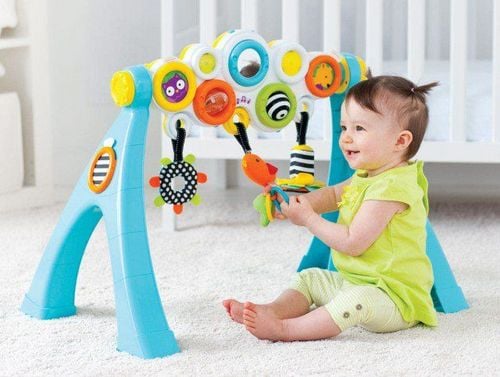
Trẻ mới biết đi của bạn (1 đến 3 tuổi) có thể trở nên không thân thiện với những đứa trẻ khác, đặc biệt là đối với đồ chơi
Please regularly visit Vinmec.com website and update useful information to take care of your baby and family.
Reference source: babycenter.com





